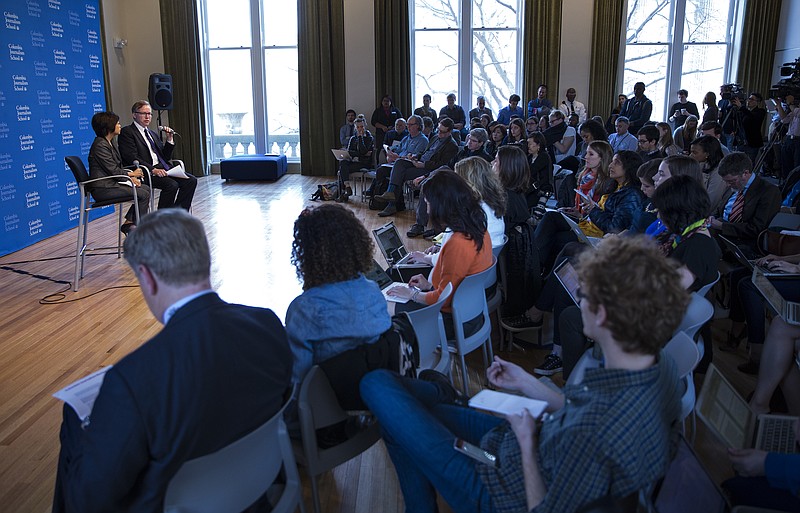More than four months ago, we asked what good could come out of what was bad in Ferguson, Mo.
The bad aside, and there is plenty to lay aside, police departments across the country have reviewed or are reviewing their policies on police stops. Many departments are looking at whether the racial makeup of their workforce is similar or approaching that of the population of their city. Still others are examining whether they have the proper equipment for certain tense situations.
Though the police officer in question, Darren Wilson, was judged by local and federal bodies to have followed proper procedures, the incident launched a number of dialogues that cities and police departments needed to have. For the long haul, that's a positive result.
Is it possible something similar can occur from the discredited University of Virginia sexual assaults story chronicled at length in Rolling Stone magazine?
We know now that police found no evidence the victim identified in the story only as "Jackie" had been raped by seven men at a fraternity house. We know, too, that the magazine failed in basic reporting, editing, editorial supervision and fact-checking in its effort to publish a sensational story about a problem that occurs on many college campuses today.
Although Rolling Stone failed to discipline those involved with the story, it still may find there will be consequences. The national Phi Kappa Psi fraternity named in the story is considering a lawsuit, and all of the magazine's reporting -- at least in the short run -- will be examined with a jaundiced eye.
If the article's publication, though, causes universities to examine more carefully how they handle sexual assault cases, how they must not rush to judgment against individuals and entities like the fraternity in question, and what they will and will not allow Greek organizations to permit during social events, the whole incident can have an upside.
Indeed, the whole concept of campus sexual assaults should be examined. No justification exists for even one, but have they become an epidemic, or has the whole concept of casual hook-ups and the kiss-and-tell, 24-7 aspect of social media blown their number out of proportion?
Were there as many sexual assaults involving the baby boomer parents of today's millennial college students, but just not reported, or has the new permissiveness allowed more situations of mutual passion to descend into incidents of assault and rape?
For magazines, newspapers and television, it also can be a time of examination. Are there instances, as in the University of Virginia case, where journalism standards are compromised to tell what promises to be a titillating and well-read (or watched) story? Are sides taken and desired conclusions reached before the reporting even begins? Is the desire for professional recognition more important than balance and truth?
Has the desire to push up viewership or readership trumped the need for the fundamental and diligent work that must be done to tell an accurate story?
A late 2014 Gallup poll indicated that Americans' belief that newspapers, TV and radio report "the news fully, accurately and fairly" equalled its previous all-time low of 40 percent.
In other words, readers and viewers -- a percentage of them, anyway -- catch on. They know when they're being spun. They know that figures often lie, and liars often figure. They see the bias. They hear the partisanship.
Fortunately, though, we know from recent history that negative situations can have good conclusions.
When first lady Betty Ford developed breast cancer in 1974, she decided to go public with her diagnosis. Because of her forthrightness, many women made it a habit to have annual mammograms.
When former President Ronald Reagan wrote his poignant letter to the American people in 1994, telling them he had Alzheimer's disease, the revelation heightened recognition of the affliction and led to more testing and research.
Hurricane Katrina, in 2005, forced New Orleans, a city below sea level that seemed to be bulletproof, to increase its storm preparedness and put in place more barriers to flooding.
A tsunami that in 2011 hit Fukushima, Japan, and resulted in a meltdown of three of the Fukushima I Nuclear Power Plant's reactors, resulted in an examination of building requirements for plants, in disaster preparedness and in energy diversification.
In the Rolling Stone sexual assault article -- as in the Ferguson aftermath -- the wrongs cannot be excused. But those things on which they shed light can now be examined with more focused eyes.
